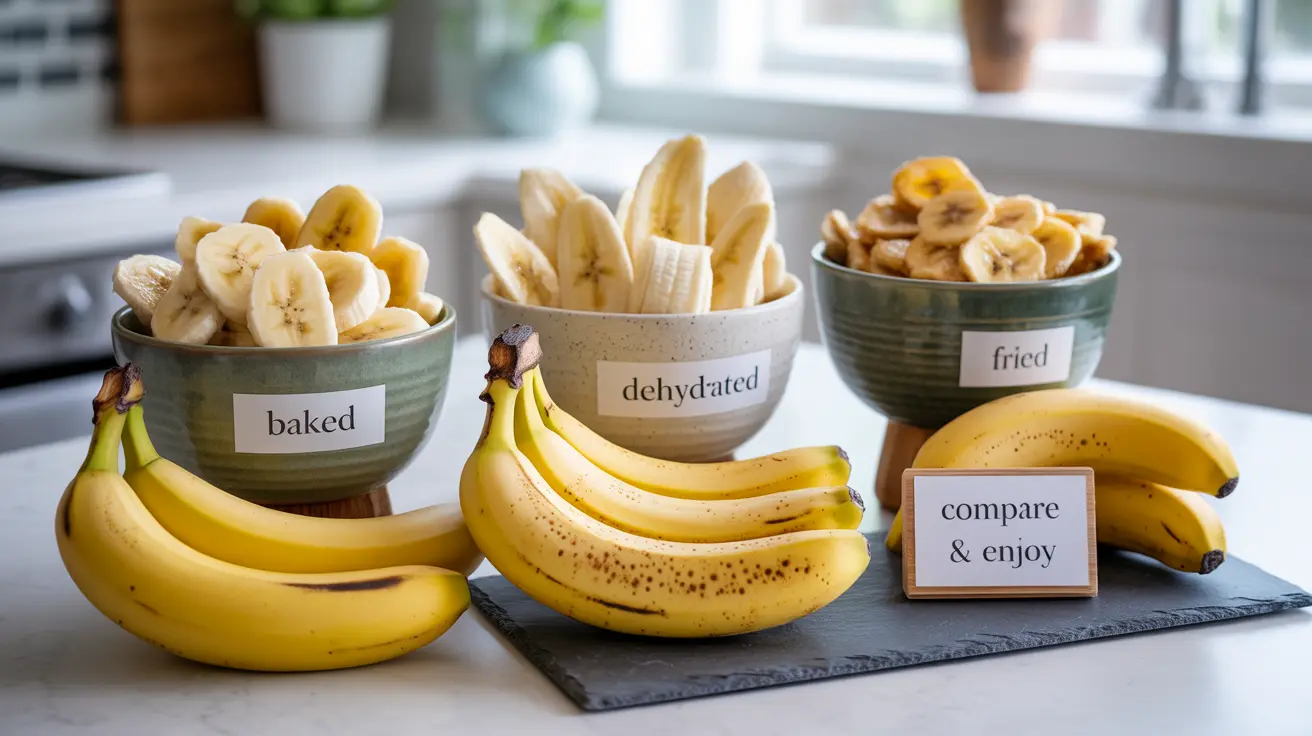Banana chips have become an increasingly popular snack option, offering a convenient and seemingly healthy alternative to traditional potato chips. However, understanding their true nutritional value and health implications is crucial for making informed dietary choices. This comprehensive guide examines whether banana chips deserve a place in your healthy snacking routine.
Understanding Banana Chips: Processing and Types
Banana chips come in several varieties, primarily distinguished by their preparation method. Traditional banana chips are typically deep-fried in oil, while healthier alternatives include baked and dehydrated versions. The processing method significantly impacts their nutritional profile and health benefits.
Deep-Fried Banana Chips
Deep-fried banana chips are made by cooking thin banana slices in oil until crispy. This process often involves:
- Coating with sugar or honey for sweetness
- Using coconut oil or other vegetable oils for frying
- Adding preservatives for extended shelf life
Baked and Dehydrated Options
These healthier alternatives are processed using different methods:
- Air-drying or dehydrating at low temperatures
- Baking with minimal oil
- Preserving more natural banana nutrients
Nutritional Profile of Banana Chips
The nutritional content of banana chips varies significantly based on their preparation method. A typical serving (about 1 ounce or 28 grams) of fried banana chips contains:
- Approximately 150-160 calories
- 8-10 grams of fat
- 15-20 grams of carbohydrates
- 1-2 grams of protein
- Various minerals including potassium and magnesium
Comparison with Fresh Bananas
Fresh bananas generally offer better nutritional value, containing:
- Fewer calories (about 105 per medium banana)
- Minimal fat content
- Higher levels of essential vitamins and minerals
- More dietary fiber
- No added sugars or oils
Making Healthier Choices
When selecting banana chips, consider these factors for healthier options:
- Look for baked or dehydrated varieties
- Check for added sugars and oils on the ingredient list
- Choose products with minimal preservatives
- Pay attention to serving sizes
- Consider making your own at home using a food dehydrator or oven
Weight Management Considerations
Due to their higher calorie and fat content, banana chips should be consumed mindfully when managing weight. Consider these strategies:
- Portion control is essential
- Balance with other nutritious snacks
- Account for their caloric content in your daily intake
- Choose them as an occasional treat rather than a daily snack
Frequently Asked Questions
Are banana chips a healthy snack compared to fresh bananas?
While banana chips can be part of a balanced diet, they're generally less healthy than fresh bananas. Fresh bananas contain more nutrients, less fat, and fewer calories, making them a more nutritious choice for regular consumption.
How do the calorie and fat content of banana chips affect weight management?
Banana chips are typically higher in calories and fat compared to fresh bananas, which can impact weight management goals. One ounce of fried banana chips contains about 150 calories and 8-10 grams of fat, making portion control crucial.
What are the nutritional benefits of eating banana chips?
Banana chips provide some nutritional benefits, including potassium, fiber, and energy from carbohydrates. However, these benefits are often diminished during processing, and the addition of oils and sugars can offset their nutritional value.
Are baked or dehydrated banana chips healthier than fried banana chips?
Yes, baked or dehydrated banana chips are generally healthier than fried versions. They contain less fat and fewer calories while better preserving the natural nutrients found in bananas.
How can I choose healthier banana chips at the store?
Look for banana chips that are baked or dehydrated rather than fried, check the ingredient list for minimal added sugars and oils, and choose products without artificial preservatives. Pay attention to serving sizes and consider brands that use organic bananas.




